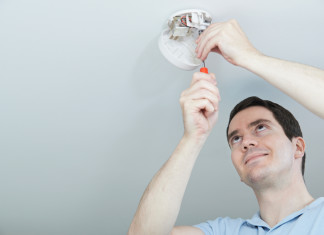Does nicotine cause cancer – is a question that haunts many smokers. A stimulant that is found to exist naturally in cigarettes, snuffs and other tobacco products, nicotine is known to lead to addiction. It has been recognized as a drug and although it has some positive effects on the body, its negative effects are far greater in number. There are known carcinogens present in every tobacco product. Overuse or excessive use of nicotine is said to increase the risk of various types of cancer, such as that of the nose, mouth, throat, stomach, larynx, pancreas, kidney, esophagus and lungs. The chemical can affect various parts of the body and give rise to side effects ranging from moderate to severe in intensity.
Cancerous Effects of Nicotine in Men and Women
For many years, nicotine was found to be cancerous for men. However, with more and more women taking up smoking in the last few decades, carcinogenic risks in women due to nicotine abuse have increased. The incidence of lung cancer in women has been growing at a very shocking pace, with smoking now being held as the main cause of lung cancer in as many as 75% women. For females who smoke, the rate of cancer development is 67% greater than that is women who do not smoke. Nicotine abuse is particularly damaging for women, due to the fact that promotes spread of breast cancer in the female body. In the US, the number of female deaths due to lung cancer has exceeded that of breast cancer.
How Does Nicotine Lead to Cancer?
How does nicotine cause cancer? Nicotine is found to get attracted to and bind to some specific types of nicotine receptors which are present in certain breast cells, which resemble epithelium. Once it binds, it arouses the cells and makes them proliferate at an enormous rate – thereby causing cancer.
After the cells become cancerous and being to multiply quickly, they are also directed by the receptors to various other areas of the body. This spreads the cancer. However, nicotine is unable to do this all on its own and there are factors apart from nicotine receptors present in breast cells which help nicotine in the spread of cancer. These are being further explored at the moment.
Traditionally, the chemical was supposed to excite or trigger just the nervous system in the human body. However, latest studies have established that even non-neuron cells – particularly cancerous cells – can be triggered by nicotine. The chemical has been found to promote signaling within the cells in patients of lung cancer. When inhaled from various tobacco products, nicotine can lead to lung cancer. Even other types of cancers, such as those of prostrate, head and neck, have been studied and their association with nicotine has been extensively examined. Nicotine actually promotes growth and rapid spread of cancerous cells.
Does Nicotine Lead To Cancer In Passive Smokers?
Does nicotine cause cancer in non-smokers? Yes, it does in passive smokers! According to the US Environmental Protection Agency, between 500 and 5,000 lung cancer cases arise in nonsmokers annually due to someone else smoking close to them. The toxic gases, nicotine and tar inhaled by them results in lung cancer.
































